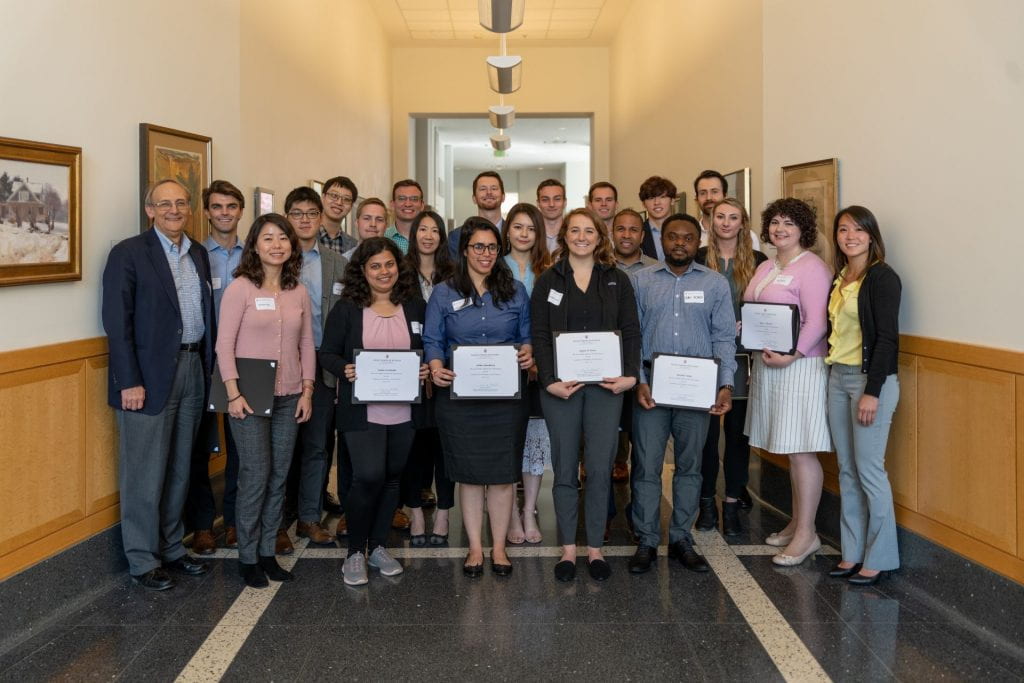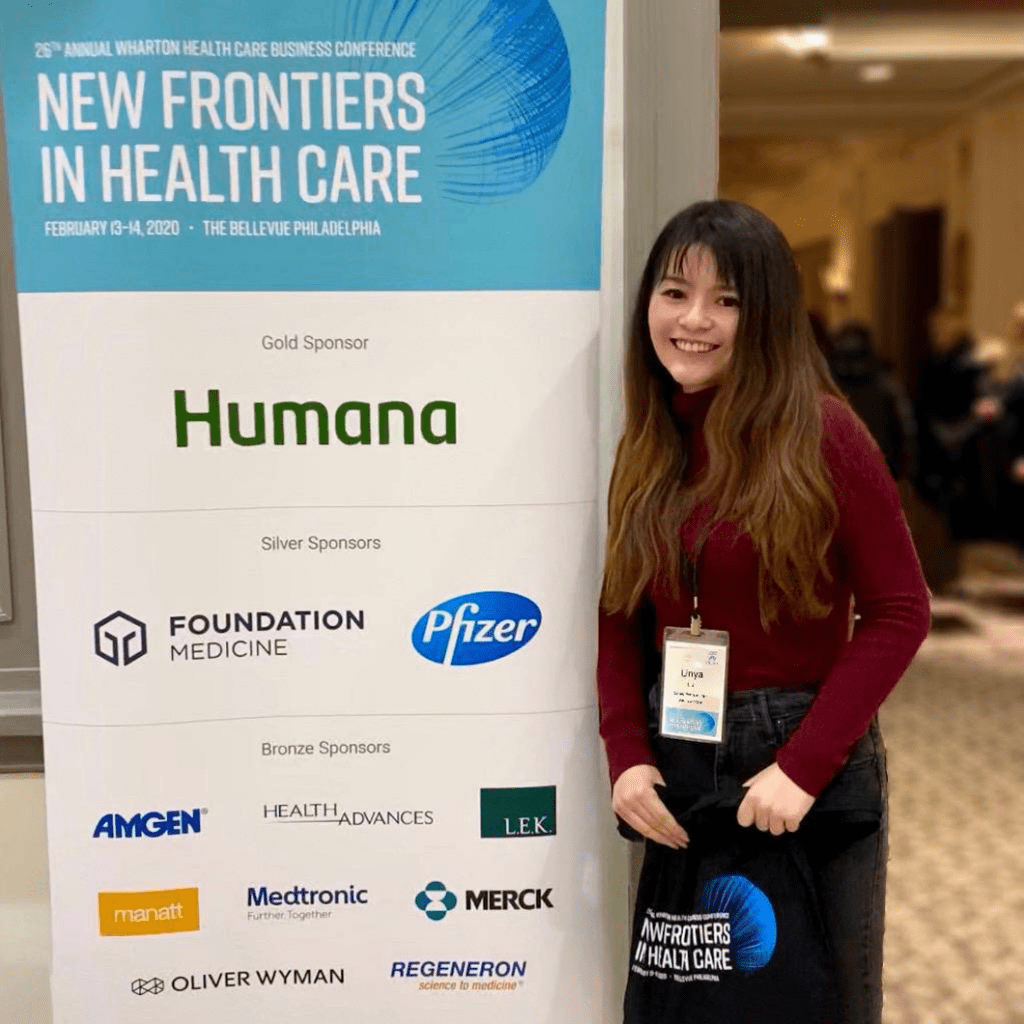By Linya Liu
Kelley BEPP ’19 | Penn MSSP ’21 | Health IoT Startup Campaign Project Lead
Excerpt from Penn SP2 News by Alina Ladyzhensky

(Linya Liu, second row in the middle, awarded the Certificate in the Buisiness of Life Sciences by the Kelley Center for the Business of Life Sciences)
Linya, who goes by Leah, completed her Certificate in the Business of Life Sciences through the Kelley School’s Center for the Business of Life Sciences in 2019. Linya earned a Bachelor of Science in Economic Consulting from the Indiana University Kelley School of Business. After college, she moved to Philadelphia and is currently pursuing a master’s degree in Social Policy and Data Analytics at University of Pennsylvania.
Linya shared that her initial interest in healthcare was sort of a coincidence:
“It’s just by accident how I enrolled in CBLS. I chatted with a classmate during a sophomore networking event. She referred the program as one of the few ‘hidden benefits’ offered to Kelley undergraduates, which offers the opportunity to participate in classes with MBA students. Of course, I thought taking the course with MBA students was a bonus.”
Despite no prior experience in healthcare upon being selected into the program, Linya took an active role in participating every event and class during the time at CBLS. Undoubtedly, Linya felt that the business of life sciences courses and experiences offered by the Center for the Business of Life Sciences laid the foundation for her understanding. And she gradually found her passion within the healthcare industry.
“Healthcare is an industry living with changes, from the scientific development side to the political side. Many world leaders such as my favorite — Bill Gates — have dedicated their work to advancing healthcare in poor countries for years. He believes that health is the first and foremost thing to be improved. On the other hand, healthcare policy is always a heated topic no matter which country you reside in. While meeting one of IU’s notable alumni, Mark Cuban, at Penn’s Medicare for All conference. Like many of us, he seemed very concerned about the current US healthcare system and raised challenging questions towards the political-charged healthcare reforms.”

(Linya Liu representing startup company, Nexusera at Wharton Healthcare Business Conference New Frontiers in Healthcare)
The fluidity of the life sciences industry attracts Linya to orient much of her research and work toward analyzing the impact to health on our daily lives. This includes ways to better assist both patients and healthcare workers. When the COVID-19 hit, she was able to assist in forecasting the number of infections and predicting hospitalizations in a timely manner.
As Linya notes, while healthcare workers continue to fight on the front lines of the epidemic and millions of people, particularly those who are immunocompromised, elderly, or otherwise at higher risk for severe illness remain isolated at home the need for medical professionals and patients to stay connected has increased tremendously.
“Fear and uncertainty are terrible. I’m from Wuhan, and it’s where all my family currently lives. When the virus first broke out there, I volunteered online helping people with mental stress relief and donating PPE to hospitals in need through fundraising with friends at Duke University,” Linya said. “When the virus became a pandemic, I wanted to do my best to support all the people who lent a helping hand to my hometown.”
To this end, Linya is currently working with a Kansas-based health IoT [Internet of Things] startup, Nexusera, who endeavors to respond to the surging need of remote care by connecting patients, many elderly, with their families and caretakers through a medication adherence management system. Specifically, the company is launching its first smart pill organizer, O’kase, through a Kickstarter campaign. Linya is involved as a part of this campaign’s leadership team.
Linya explained her role in product management and operations for O’kase, which is a smart pill container that organizes, reminds, connects, and finally optimizes the daily dosing experience. It also gives family and caretakers the ability to manage and monitor patient’s medication adherence online.
She noted the product was in development before the COVID-19 crisis began. With the rising need for remote health-related services, Linya hopes that O’kase will help fill a void in the current market, particularly since it does not rely heavily on a smartphone in order to function, and is more intuitive for users who are not tech savvy.
To summerize, Linya elaborated “Although O’kase comes with both Bluetooth and cellular modules, for elderly people, they won’t have to deal with the Bluetooth setup. Cellular connectivity is ready to go just like the Kindle cellular version, so there is zero setup needed. It only needs to be charged once every two weeks, it’s that simple!”
Linya concluded with “I’m extremely grateful to the CBLS for leading me to the life sciences industry.”
Leave a Reply